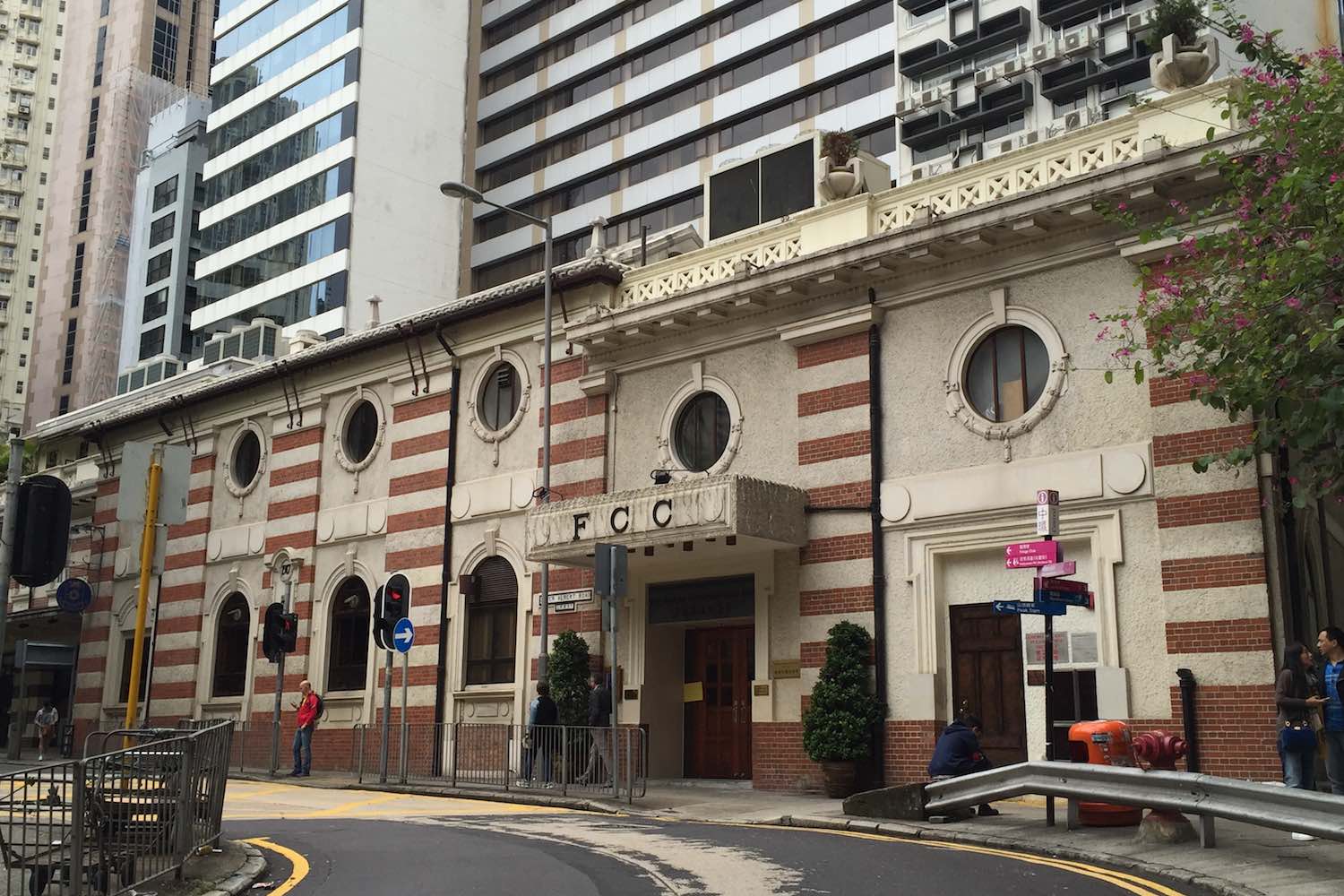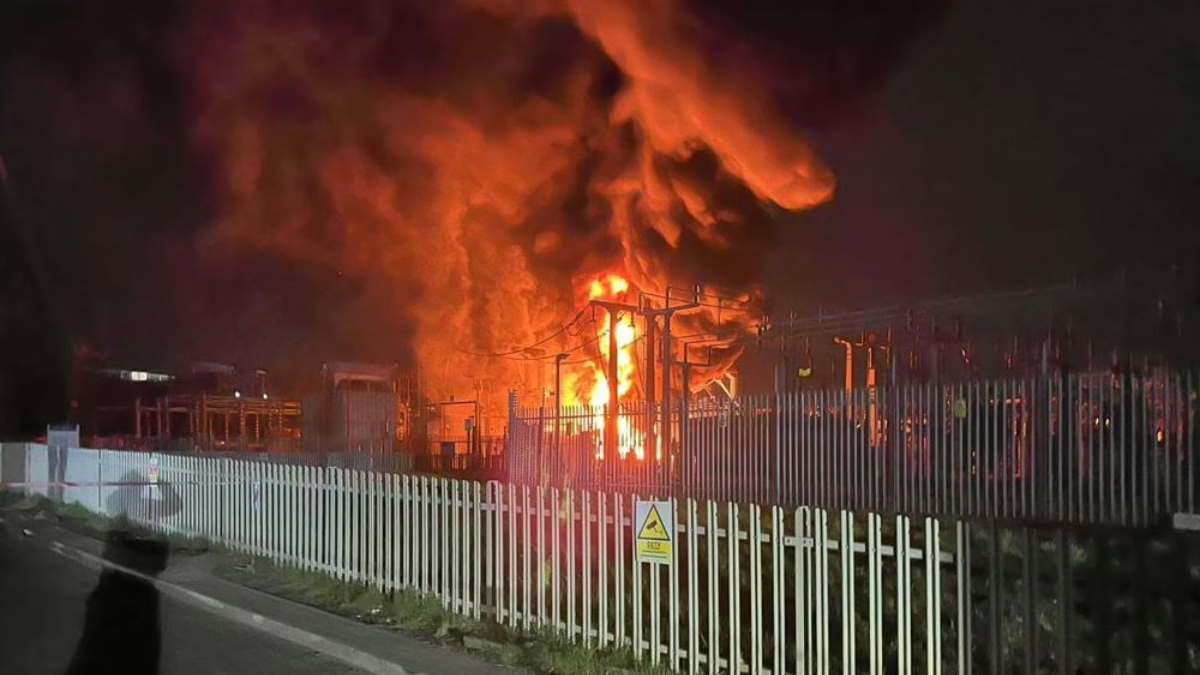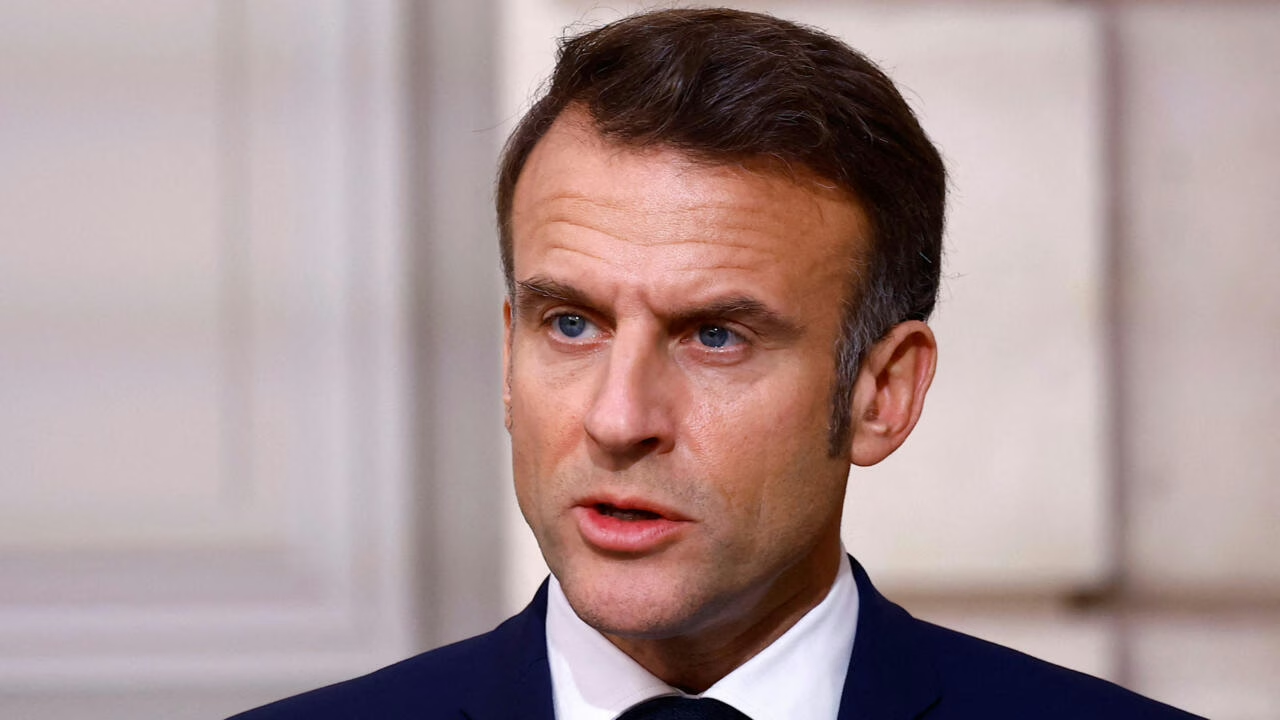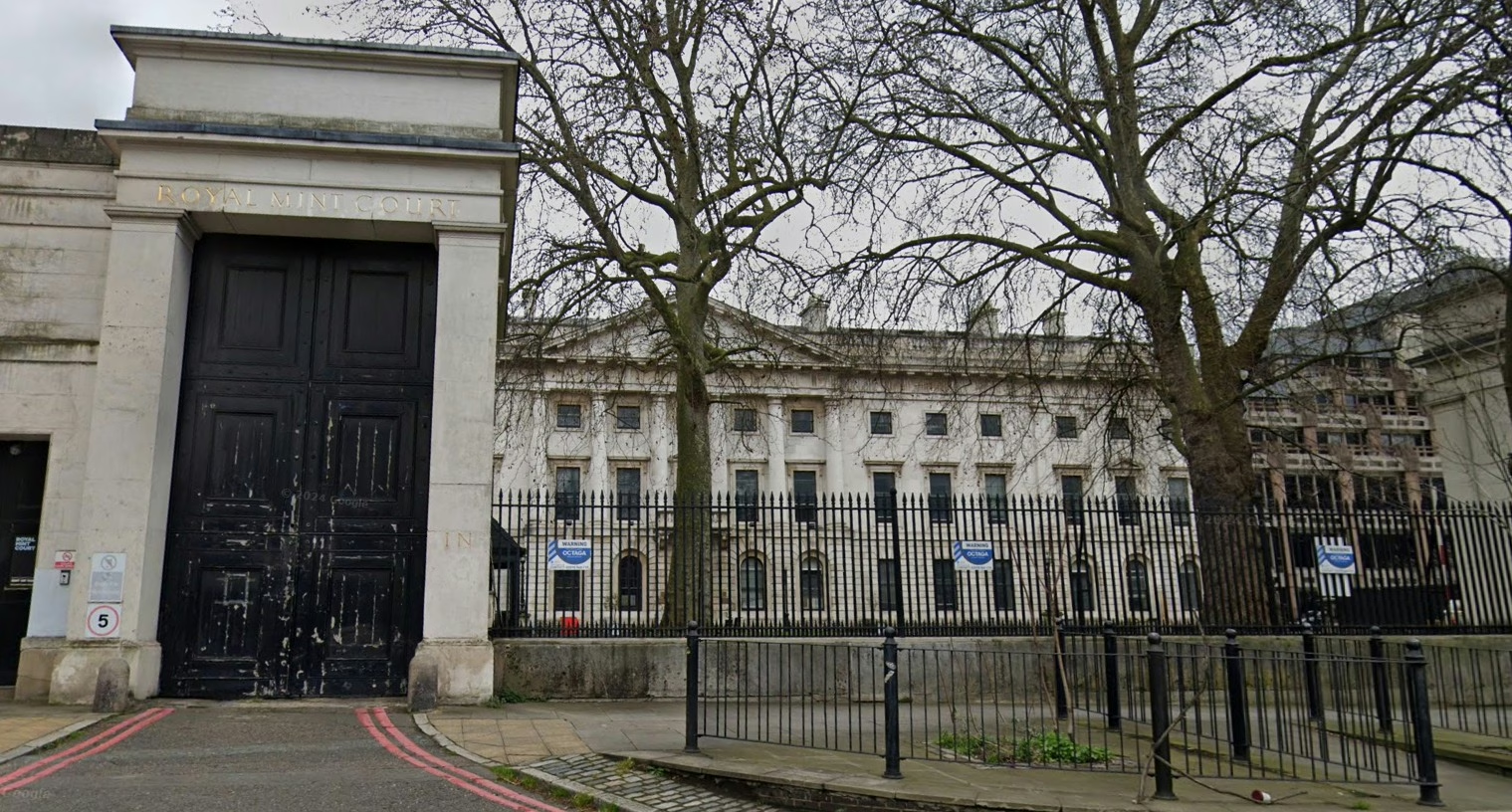The Foreign Correspondents’ Club of Hong Kong (FCC) has once again found itself in the crosshairs of Hong Kong’s pro-establishment camp and pro-government media due to its latest press freedom survey. The report, which highlights a deteriorating media environment in the city, has sparked heated controversy, reigniting scrutiny of the FCC’s long-standing tensions with the government and pro-establishment factions. In particular, it recalls the 2018 incident involving an invitation to “pro-independence” figure Andy Chan and the subsequent visa denial of FCC vice-president Victor Mallet, events that not only cost the FCC dearly but also marked a turning point in Hong Kong’s declining press freedom, with lasting impacts on the city’s international reputation and media landscape.
FCC Press Freedom Survey Sparks Fresh Controversy
The FCC’s April 2025 survey revealed that 62% of 69 surveyed members believe Hong Kong’s media environment has significantly worsened over the past two years, 65% admitted to self-censoring due to legal risks, 33% are considering leaving the city due to press freedom concerns, and nearly 6% have already made plans to depart. The report attributes these challenges to the 2020 National Security Law and the 2023 Basic Law Article 23 legislation, which have imposed significant pressure on journalists, leading to fewer sources and the scaling back of media operations in Hong Kong.
The report drew swift backlash from the pro-establishment camp and pro-government media. Outlets such as Ta Kung Pao and Wen Wei Po criticised the FCC for exaggerating issues, labelling the survey “unrepresentative due to its small sample size” and accusing it of “smearing Hong Kong’s image” and “catering to Western anti-China sentiment.” The Hong Kong government reiterated that press freedom is safeguarded under the Basic Law but must operate within the framework of national security, denouncing the FCC for misleading the public. The Chinese Foreign Ministry’s Commissioner’s Office in Hong Kong went further, accusing the FCC of “sowing discord” and demanding it cease interfering in Hong Kong’s affairs.
FCC President Lee Williamson defended the survey, stating it reflects real issues and underscoring that press freedom and the rule of law are cornerstones of Hong Kong’s prosperity. The FCC vowed to continue advocating for journalists’ rights. The international organisation Reporters Without Borders (RSF) backed the FCC, noting that Hong Kong’s press freedom ranking plummeted to 140th in 2025, entering the “red zone,” indicating a “very serious” situation.
The 2018 Andy Chan Speech and Victor Mallet Visa Row
The FCC’s clashes with the pro-establishment camp are not new, with the 2018 Andy Chan speech and the subsequent Victor Mallet visa denial standing out as defining moments that continue to cast a long shadow. In August 2018, the FCC invited Andy Chan, convenor of the Hong Kong National Party, to speak at its Central clubhouse on the topic of “Hong Kong Nationalism: A Case for Independence Under Colonial Oppression.” The Hong Kong National Party, which openly advocated for Hong Kong independence, was already targeted for a ban by the government, making the FCC’s invitation a direct challenge to the central and local authorities’ red lines.
The announcement prompted immediate condemnation. The Chinese Foreign Ministry’s Commissioner’s Office demanded the event be cancelled, arguing that “Hong Kong independence” violated the Basic Law and the “One Country, Two Systems” principle. Chief Executive Carrie Lam publicly criticised the FCC as “inappropriate,” while pro-establishment media outlets Ta Kung Pao and Wen Wei Po accused the FCC of “provoking Beijing” and “providing a platform for separatism.” Victor Mallet, then FCC first vice-president and Asia news editor for the Financial Times, defended the event, stressing that the FCC’s mission was to foster open discussion, not to endorse the speaker’s views.
The speech went ahead on 14 August 2018, with Chan addressing around 100 attendees on his vision for Hong Kong independence. The atmosphere was tense but orderly, though the event drew minor protests outside. However, two months later, Mallet’s application to renew his work visa was rejected by the Hong Kong Immigration Department without explanation, forcing him to leave the city within seven days. Widely seen as retaliation against the FCC, the incident marked the first time since Hong Kong’s 1997 handover that a foreign journalist was expelled due to a visa issue, sending shockwaves through the international community.
Lasting Impacts of the Mallet Visa Denial
The refusal to renew Mallet’s visa had far-reaching consequences, affecting press freedom, international media operations, and Hong Kong’s global standing:
- Erosion of Press Freedom: The Mallet case was perceived as a direct attack on foreign journalists, creating a chilling effect. Journalists feared that covering sensitive topics, such as independence, human rights, or government criticism, could jeopardise their visas, leading to increased self-censorship. The Hong Kong Journalists Association noted that local journalists also felt heightened pressure. RSF’s global press freedom index reflects this decline, with Hong Kong’s ranking dropping from 70th in 2018 to 140th in 2025, with the Mallet case frequently cited as a key example of government suppression.
- Undermined Confidence in International Media: Hong Kong’s status as Asia’s media hub was shaken. Major outlets like the New York Times and CNN, which had regional headquarters in the city, began reassessing risks. In 2019, the New York Times relocated part of its Asia operations to Seoul, citing concerns over Hong Kong’s media environment. By 2021, an FCC survey indicated that nearly 30% of foreign journalists were considering leaving due to visa or safety concerns, weakening Hong Kong’s role as a global news hub.
- Constraints on FCC Operations: The Mallet incident made the FCC a prime target for government and pro-establishment scrutiny. Subsequent FCC activities, such as press freedom surveys and human rights awards, faced relentless criticism, and in 2022, its clubhouse lease was amended to include national security clauses. Internally, the FCC began exercising greater caution, with moves like suspending the Human Rights Press Awards in 2022 and requiring legal reviews for statements in 2023, reflecting the lasting psychological impact of the Mallet case.
- Damage to Hong Kong’s International Reputation: The Mallet case drew widespread condemnation from the United States, United Kingdom, European Union, and Canada. The US State Department warned that the visa denial “undermined Hong Kong’s reputation as an open society,” while the UK Foreign Office called it an erosion of free speech. The incident fuelled perceptions that Hong Kong’s autonomy was waning, impacting investor confidence. Some businesses began relocating regional headquarters to Singapore, citing concerns over the city’s media and legal environment.
Ongoing Tensions with the Pro-Establishment Camp
Beyond the 2018 incident, the FCC has repeatedly clashed with the pro-establishment camp and government due to its press freedom advocacy:
- 2020 Media Accreditation Policy: The Hong Kong Police redefined “media representatives,” excluding freelance and online journalists, prompting FCC objections, which the pro-establishment camp dismissed as “interference in internal affairs.”
- 2021 Press Freedom Survey: An FCC report found 83% of journalists believed the media environment worsened post-National Security Law, drawing Beijing’s condemnation.
- 2022 Human Rights Press Awards: The FCC suspended the awards over National Security Law concerns, with the pro-establishment camp claiming it was “bowing to the rule of law.”
The FCC’s History and Mission
Founded in Chongqing in 1943 and relocated to Hong Kong in 1949, the FCC has long served as a hub for reporting on China and Asia. Its mission is to provide a platform for professional exchange, promote press freedom, and support journalists’ work. Since the 1997 handover, the FCC has increasingly taken on a role in monitoring press freedom, issuing reports and hosting sensitive discussions, which has led to accusations from the pro-establishment camp of acting as a “foreign agent.”
The 2018 Andy Chan incident and Mallet visa row marked a turning point in the FCC’s relations with the government. The expulsion of Mallet not only shook foreign journalists’ confidence but also prompted international media to reallocate resources. Though the FCC persists in its mission, its operational space has narrowed significantly, particularly following the National Security Law and Article 23 legislation, with visa restrictions, event scrutiny, and internal self-censorship posing growing challenges.
The Future of Press Freedom
The FCC’s latest controversy, coupled with the historical echoes of the 2018 Andy Chan incident and Victor Mallet visa row, underscores the ongoing struggle for press freedom in Hong Kong. The international community has expressed alarm at the city’s deteriorating media environment, while the pro-establishment camp argues that the FCC’s reports and activities undermine Hong Kong’s stability, highlighting a deep divide. Under the shadow of the National Security Law and Article 23, the FCC’s ability to uphold its press freedom mission remains under intense scrutiny.
“We will not back down,” Lee Williamson declared. “Press freedom is the lifeblood of Hong Kong, and we will continue to speak out for journalists.” Yet, with the political environment tightening, the FCC faces formidable challenges, and the lessons of the 2018 Andy Chan incident and Victor Mallet visa row continue to resonate in Hong Kong’s media landscape.
Discover more from “Bridging Hongkongers. Reporting Truth.”
Subscribe to get the latest posts sent to your email.




